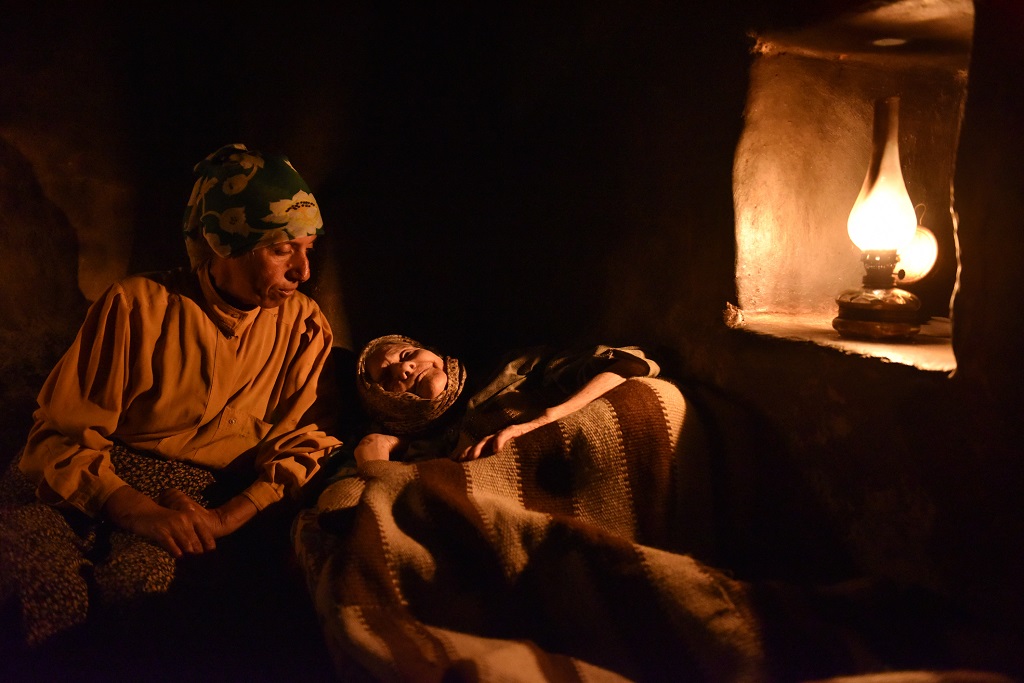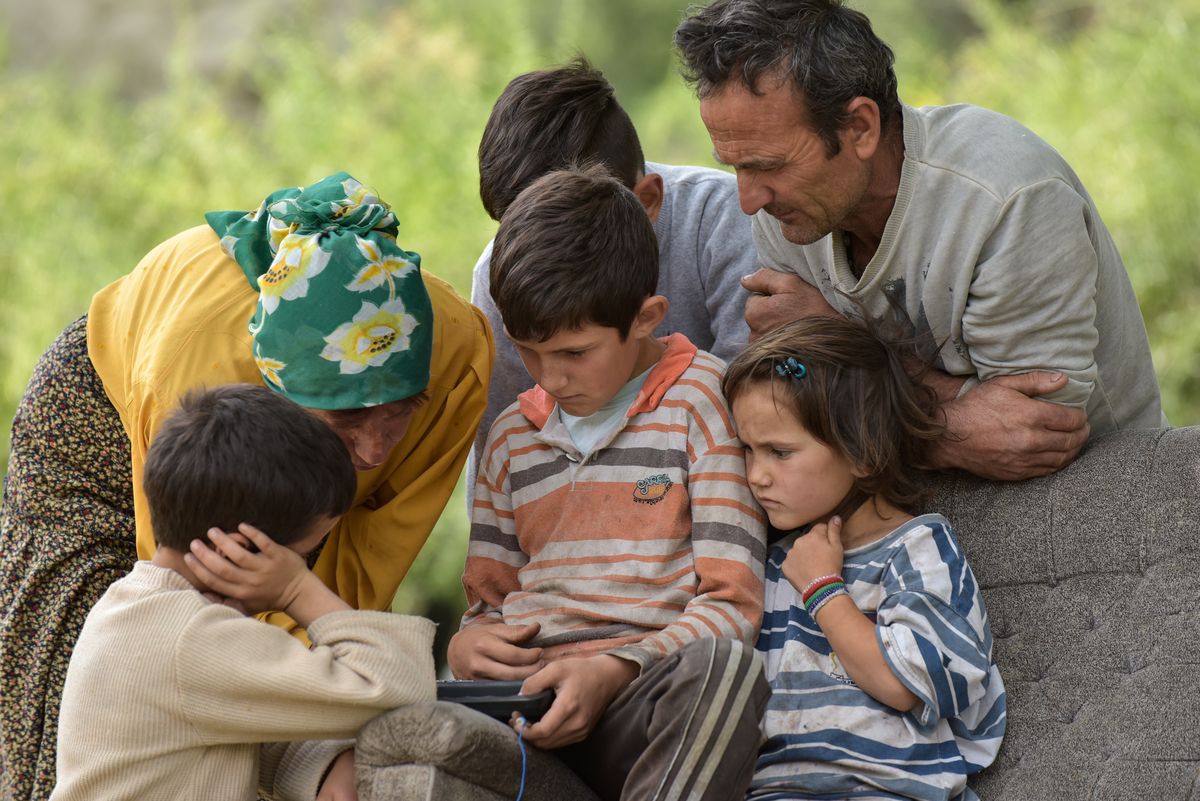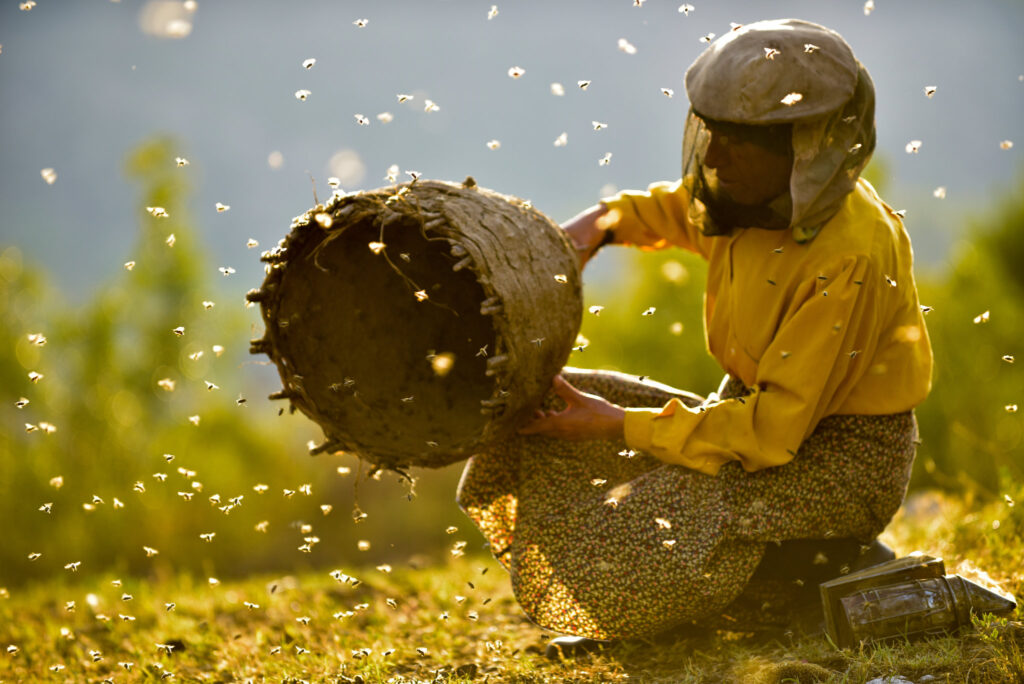The life and struggle of a North Macedonian female beekeeper are portrayed in Honeyland in the form of a documentary. The film does not get restricted to only in the descriptions of daily life saga, rather highlights certain aspects of the protagonist’s life which can only be realized through experiences. The experiences are so vast and wide that the filmmakers end up filming four hundred hours of footage over three years to shape it up to one and a half hours. Tamara Kotesvka and Ljubomir Stefanov make the film which can be termed as astonishingly beautiful and meticulously powerful. 95% of the film is real and only 5% is constructed.
Filmmakers Ljubomir Stefanov and Tamara Kotesvka wanted to make a short documentary on the Bregalnica River and its surrounding region in Lozovo municipality, central North Macedonia with the help of government funding. The idea behind the project was to focus on the preservation of natural resources around the river and the farming practices used by the local residents. When the filmmakers met Hatidze, a rural woman beekeeper residing in the Bekirlija village nearby, the idea got changed from a short documentary to a long documentary. The subject matter changed from the river and its surrounding areas to Hatidze and her life. The long documentary focuses on the loss of ecological balance, the pressure of society, human greed, exploitation of natural resources, and modern consumerism.
Hatidze is a rural woman beekeeper of Turkish origin in the hilly countryside of North Macedonia and makes both the ends meet by harvesting honey from the wild beehives. She follows a very natural process for nurturing the bees in the lap of mother earth and leaves half of the total honey for the bees. Hatidze visits the markets in Skopje and sells the remaining half off. She lives with her ailing mother in one of the most remote corners of the country. As per the Turkish tradition, the youngest daughter does not marry and takes care of old parents. The scenes including Hatidze and are mother can be symbolized with any mother-daughter relationship in any corner of the world.
A cow herder, Hussein Sam, lands in the village for the purpose of animal husbandry. Soon, Hussein becomes enthusiastic about beekeeping and learns his lessons from Hatidze. With seven children and his wife, Hussein struggles to earn his livelihood and deviates from the principle of wild beekeeping. He sells most of the honey off for making maximum profit and his bees attack Hatidze’s beehives. Her bees die and she is out of business.

Humans coexist with other animals in the lap of Mother Nature on this planet. So, they should not harm any animal or natural resources, which results in the loss of ecological balance and biodiversity. Human greed has been the reason for this multiple times. The depletion of natural resources affects humans physically, socially, and economically. The impact may not be visible immediately, but can be realized in the long run for sure. The loss of biodiversity can be extremely detrimental. It cannot be restricted to a particular society or a class of people, rather it engulfs an entire nation or the entire world.

When Hussein Sam asks Hatidze’s help, she helps him with a few of her bees to set up the beehive and start the business. She vividly instructs Hussein to keep half honey for the bees. Bees are dependent on the honey remaining in the beehive for survival during the time of winter. Hussein starts obeying it but falters when his customer places increased demand. He sells most of the honey from the beehives resulting in his bees attacking Hatidze’s beehives. Most of Hatidze’s bees die due to this and she is out of business. Hussein cannot control his greed and succumbs to the pressure of society. Ugly teeth of modern consumerism come out even in the remotest corner of this world. Humans get defeated by capitalist forces very often. When human morality is lost, it affects the entire ecosystem.
Honeyland holds some definite forms of breathtaking cinematography. Cinematographers Fejmi Daut and Samir Ljuma amaze the audiences on almost every frame. Editing four hundred hours of footage to one and a half hours is not an easy task. Editor, Atanas Georgiev, has does a painstakingly brilliant job. From conceptualization to filming, Filmmakers Ljubomir Stefanov and Tamara Kotesvka present the audiences a well-researched and documented piece of art which largely depicts empathy and resilience. The biggest achievement of this film is that it takes the audiences to the North Macedonian village and makes them feel the agony of Hatidze’s life.

Amongst multiple international acclaims, Honeyland won three major awards at the 2019 Sundance Film Festival and was nominated for two Academy Awards – Best International Feature film and Best Documentary Feature.
